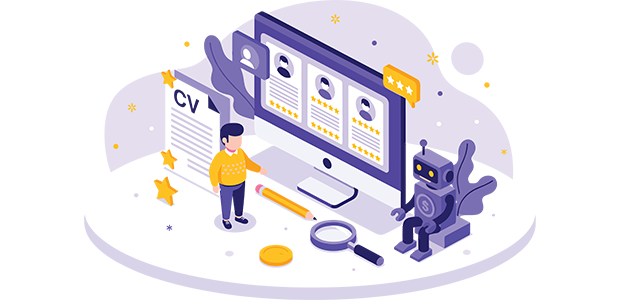
1 in 10 CVs could be AI-generated by 2030: preparing for an AI-driven future
The hiring landscape is about to experience profound change. New research warns that by 2030, as many as one in ten CVs could be entirely AI-generated. While AI offers promising efficiencies for candidates to craft their applications, this shift brings significant implications for how employers attract, assess, and ultimately hire top talent.
The impact on hiring
AI-generated CVs, powered by advanced language models, enable candidates to create polished, well-structured resumes quickly. This creates a double-edged sword: while it helps some job seekers present their best selves, it also risks saturating recruitment pipelines with content that may lack authenticity or genuine personal insight.
Consequently, hiring managers may find it increasingly challenging to differentiate genuinely qualified candidates from those whose applications lean heavily on AI assistance. This evolution demands a change in hiring practices to ensure quality talent identification.
Key risks for employers
Employers face several risks with the proliferation of AI-generated CVs:
- Over-reliance on automated content may mask actual candidate abilities, leading to misinformed hiring decisions
- Recruitment bias could be inadvertently reinforced if AI tools or recruiters fail to correctly identify authentic candidate experience and skills
- The integrity and fairness of recruitment might be compromised, exposing firms to reputational risks and potential legal challenges
- Time and resources may be wasted processing applications that do not accurately reflect candidate suitability
Practical red flags to spot AI-written CVs
Though AI writing tools grow more sophisticated, certain tell-tale signs can help recruiters identify likely AI-influenced applications:
- Overly polished or formulaic language lacking specific examples, measurable achievements, or personal narratives
- Repetitive sentence structures and buzzwords used without contextual explanation
- Inconsistent flow or unusual phraseology that feels robotic rather than conversational
- Generic or vague job descriptions that don’t align well with candidate background or role expectations
- Skill mismatches or implausible claims unsupported by detailed evidence
Recommended HR tech and workflows
To mitigate risks and ensure robust hiring, employers should consider:
- Implementing AI content detection tools integrated into Applicant Tracking Systems to flag potentially AI-generated CVs for review
- Adopting multi-stage candidate evaluation, including psychometric testing, structured interviews, and video assessments, to validate authenticity and fit beyond written documents
- Using automated workflows that extract and analyse CV data against job specifications to identify red flags and inconsistencies efficiently
- Regular training for hiring teams on AI’s impact, detection methods, and evolving recruitment best practices
Embracing smart, ethical hiring policies
As AI-generated CVs become a significant part of recruitment, businesses that act now to integrate smart technologies and safeguard hiring integrity will gain a competitive edge.
HR leaders need to evaluate their recruitment policies, invest in AI-aware tools and training, and champion transparency and authenticity in candidate evaluation. Emphasising both technology and human insight is essential to navigate this new era responsibly and successfully.
At Instant Offices, we remain committed to supporting organisations in adapting to technological change. By embracing balanced, informed hiring practices, employers can continue to attract and retain the best talent in an AI-augmented world.
For more startup news, check out the other articles on the website, and subscribe to the magazine for free. Listen to The Cereal Entrepreneur podcast for more interviews with entrepreneurs and big-hitters in the startup ecosystem.

